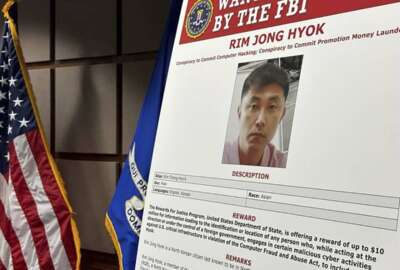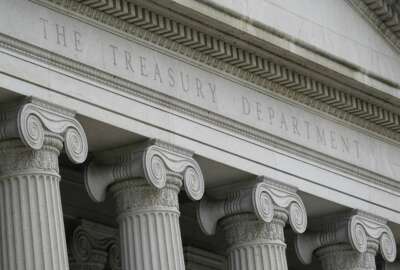N. Korea watchers on why army’s big day has taken a backseat
The North Korean army's April 25 anniversary is not such a big day under Kim Jong Un, who has emphasized the birthday of the nation's founder 10 days earlier
SEOUL, South Korea (AP) — The North Korean capital’s broad, clean avenues were, by the authoritarian nation’s usually over-the-top celebratory standards, fairly subdued ahead of Tuesday’s 85th anniversary of the founding of the Korean People’s Army.
For years, the army celebration rivaled the April 15th anniversary of the birth of North Korea’s late founder, Kim Il Sung, in its pageantry. Army Day festivities saw immense displays of weaponry and military might, and thousands of people on the streets of Pyongyang in orchestrated shows of unity.
But since the rise of Kim Jong Un, the third generation of the Kim family to rule the country, the April 25 army commemoration has taken a backseat to Kim Il Sung’s birthday, which is celebrated with an unparalleled display of North Korean patriotism and power. The practice sessions alone for April 15 choke the avenues and public squares of Pyongyang with tens of thousands of people and hundreds of vehicles.
The Associated Press queried North Korea specialists from around the world for their views on why the newest Kim appears to have shifted focus from the era of his father, Kim Jong Il.
___
DUYEON KIM, a visiting senior fellow at the Korean Peninsula Future Forum in Seoul:
Focusing on Kim Il Sung glorifies the nation’s founder and also “legitimizes the Kim bloodline succession,” she said. “This, however, does not necessarily mean Kim Jong Un is deemphasizing the importance of the North Korean military — the two days are not comparable. That said, we have witnessed both Kim Jong Il and Kim Jong Un try to empower or emphasize the Workers’ Party more so that the power base is not centered only around the military.
“Kim Jong Un has also tried to mimic his grandfather in looks and policies. He resurrected his grandfather’s ‘byungjin’ strategic line of parallel economic and military development, but has apparently repackaged the ‘military’ pillar to include nuclear development.”
“So it appears Kim Jong Un realized that the military-first policy of his father is not sustainable and that regime security also entails economic prosperity.”
___
ROBERT KELLY, a political science professor at Pusan National University, in Busan, South Korea:
“Kim Jong Un’s father nearly destroyed the North Korean economy by allowing the military a major policy and budgetary role,” Kelly said. This drained the budget, worsened a horrific famine during the late 1990s, and increasingly made North Korea economically dependent on China.
“Kim Jong Un’s rollback of military-first — purging KPA brass, eliminating the national defense commission, publicly emphasizing the founder Kim Il Sung instead of Kim Jong Il or the KPA — is likely intended to bolster economic growth in order to give the regime greater sustainability and keep it from becoming a Chinese economic satrapy with the obvious political vulnerability that implies.”
___
HAZEL SMITH, a North Korea scholar and professor at SOAS, University of London:
Smith doubts there is much political significance in a decreased focus on the April 25 celebrations.
North Koreans “are terribly pragmatic” and also have a serious labor shortage, she said. Since major celebrations require weeks of practice, draining the worktime of tens of thousands of Pyongyang residents, she believes the government may have simply decided to concentrate its attention on a single day in April.
“They have to decide where to marshal their pageantry resources, so to speak, and perhaps they’re concentrating on April 15 because it’s such an important holiday,” she said. “It could be as simple as that.”
___
SUE MI TERRY, a former Korea analyst for the U.S. Central Intelligence Agency:
The intense focus in earlier years on April 25 celebrations came because Kim Jong Il “wanted to buttress his rule after he took over.”
“Now Kim Jong Un has returned to the party-centered governance of his grandfather’s era and has been focused on resurrecting the party’s power over the military,” Terry said.
To Kim Jong Un, “wrapping himself in the mantle of his still-popular grandfather, the ‘eternal president’ Kim Il Sung, makes sense. Kim Jong Un came to power, after all, at a young age in a communist but still a Confucian society that reveres age. Moreover, he is only the third son of Kim Jong Il, not the first. Thus he is likely insecure about any perceived illegitimacy of his rule.”
___
GO MYONG-HYUN, a research fellow at the Asan Institute in Seoul:
Kim Jong Un’s move to de-emphasize the KPA anniversary is a “definite break from his father’s era,” Go said.
“Under Kim Jong Il, the most important organ was the military; under Kim Jong Un the most powerful organ of the state is the Organization and Guidance Department of the Korea Workers’ Party.”
“The reason why Kim Jong Un emphasizes the ‘civilian’ aspect of the North Korean state is probably because Kim Jong Un feels he lacks sufficient political legitimacy. He is not the eldest son and he was hidden from the North Korean establishment up until 2008-9. He doesn’t want to be seen as imposed by Kim Jong Il but instead entrusted with leadership by the establishment thanks to his achievements (i.e. nuclear program).
“In sum, the de-emphasis of the military is not because Kim Jong Un is offering an olive branch to the world or wants to reduce the defense burden on the economy, but because Kim Jong Un wants to emphasize his political leadership of the North Korean state and the party.”
___
Sullivan reported from New Delhi.
___
This story has been corrected to note that Sue Mi Terry is a former Korea analyst, not Korean analyst.
Copyright © 2025 Federal News Network. All rights reserved. This website is not intended for users located within the European Economic Area.




